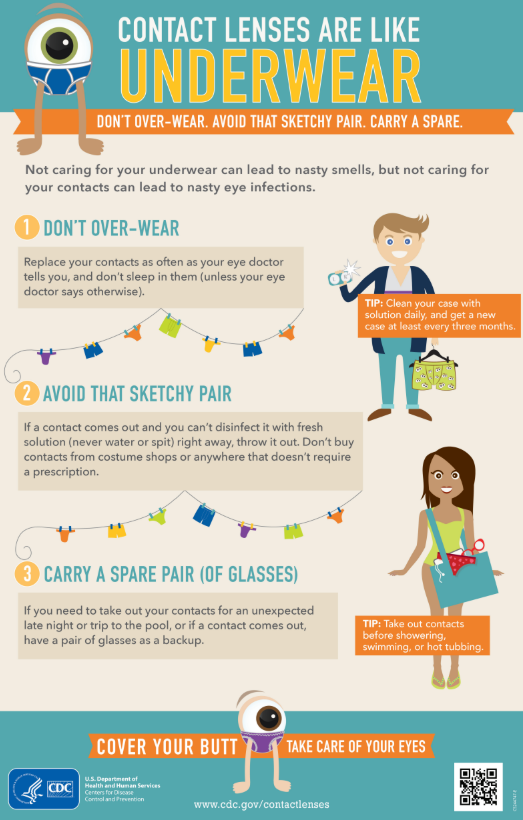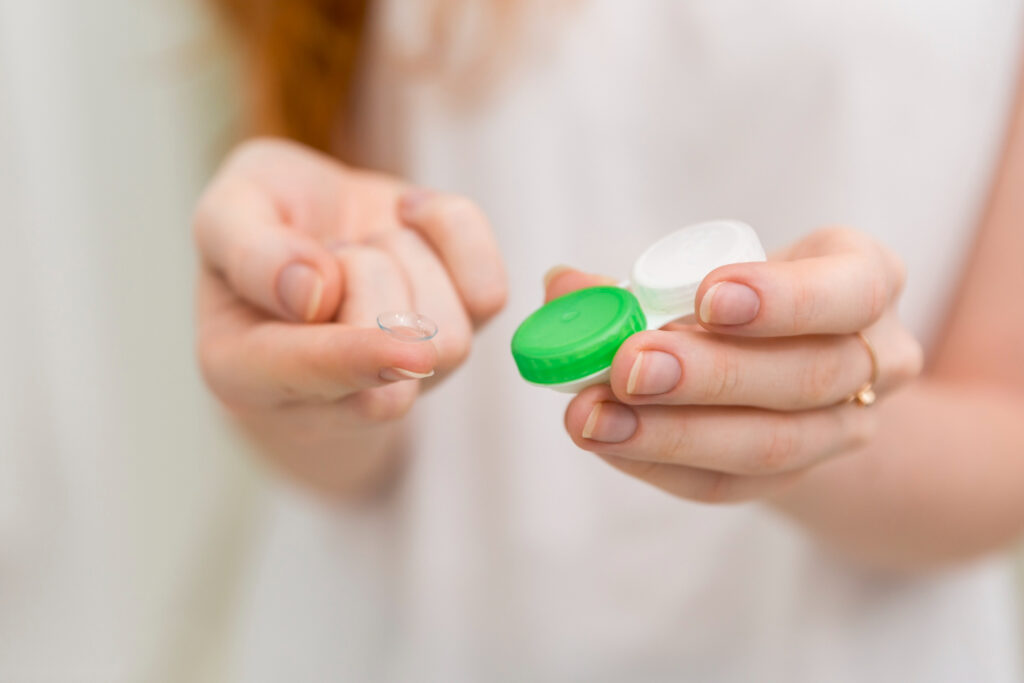Hello everybody! This is Dr. Jacob Allred, an optometrist with Insight Eye Care Glenpool. Today I want to talk a bit about different types of contact lenses.
Many people know about these lenses, but don’t realize the extent of how many options there truly are. Nowadays, there are daily, weekly, bi-weekly, and monthly options for soft lenses. Hard lenses can last up to 3 years with proper handling/cleaning!
As a prescriber I always suggest daily lenses if a patient doesn’t have a preference. Why? Daily lenses are by far the most comfortable. Because they don’t have to be as durable as a monthly lens, they can be made thinner and with higher water contents. Both of these lend not only to comfort, they leave less of a health impact on your eyes. As lens thickness increases contacts allow less oxygen to get to the cornea (the front of the eye).
Over a long period of time, a thick lens can cause hypoxia (oxygen starved tissue) which can result in abnormal blood vessels growing into cornea towards your pupil. It can also cause swelling which could temporarily blur vision. Another reason daily lenses are superior to monthly lenses is they circumvent the need for lens hygiene. Sure, you still need to maintain a clean environment as well as wash hands before insertion and removal of the lens, however after lens wear a patient can simply dispose of the lens. Without the risk of improper cleaning or lens storage there is less risk for infection. The only con to a daily lens is obvious – it is more expensive. With all expenses considered (solutions, cases, the cost of lost/ripped lenses), it isn’t terribly uncommon for dailies to be 15-30% more expensive.

All of this said, there are still great monthly lens options. In some cases prescriptions only exist in monthly options, especially people with high astigmatism. When used properly the risk for contact lens related infections is higher than daily, however still incredibly low. Usually my patients report to me that the first week is the most comfortable week and as the month progresses it becomes more and more obvious that the lens is needing replaced soon.
Sometimes this phenomenon is unavoidable, but discomfort as the month goes on can suggest insufficient cleaning. Sometimes switching solutions or changing technique makes all the difference, so if you are experiencing something like this be sure to explore different cleaning options with your doctor. Sometimes something as simple as changing brands will yield better comfort for the longevity of the month.
There are also in-betweens that are great options, including a weekly lens and a bi-weekly lens. I always tell patients the more frequently you replace the lens, the better!
If you have allergies or dryness, sometimes even a daily lens can be a struggle. If you feel like you can’t get at least 8 hours of comfortable wear-time consistently, it might be worth either sticking with glasses or trying a hard contact. There are multiple types of hard contacts ranging from the smaller Rigid Gas Permeable (RGP) lenses to the larger Scleral lenses. Both are going to yield incredible vision as the optics can be much improved with harder lens materials. RGPs take about 10-14 days to get used to, and while they shouldn’t be painful I always tell my patients to expect a “lens awareness” for that first couple weeks. RGPs are great because they can come in single vision or multifocal options.
We have a very high success rate with multifocal RGPs and often times patients who have trouble with a soft multifocal will thrive in an RGP multifocal. Scleral lenses trap solution against the eye and for that reason can be great for people that have corneal diseases like dryness, keratoconus, or post-surgical irregularities. While hard contacts are more expensive per lens, they can be less expensive in the long run if you take proper care of them.
My goal for today was to help you realize how many options there are for contacts. Whether you are wanting single vision, multifocal, or monovision correction, there are many different options. If you have struggled with a particular lens in the past, that doesn’t mean you wouldn’t be a great candidate for something else.
Please do not hesitate to ask somebody on our team about any potential vision product; we love to have these talks with you all and want you to know that you are not alone in your pursuit for your clearest vision!
Thank you for reading!
Dr. Allred, Insight Eye Care Glenpool

